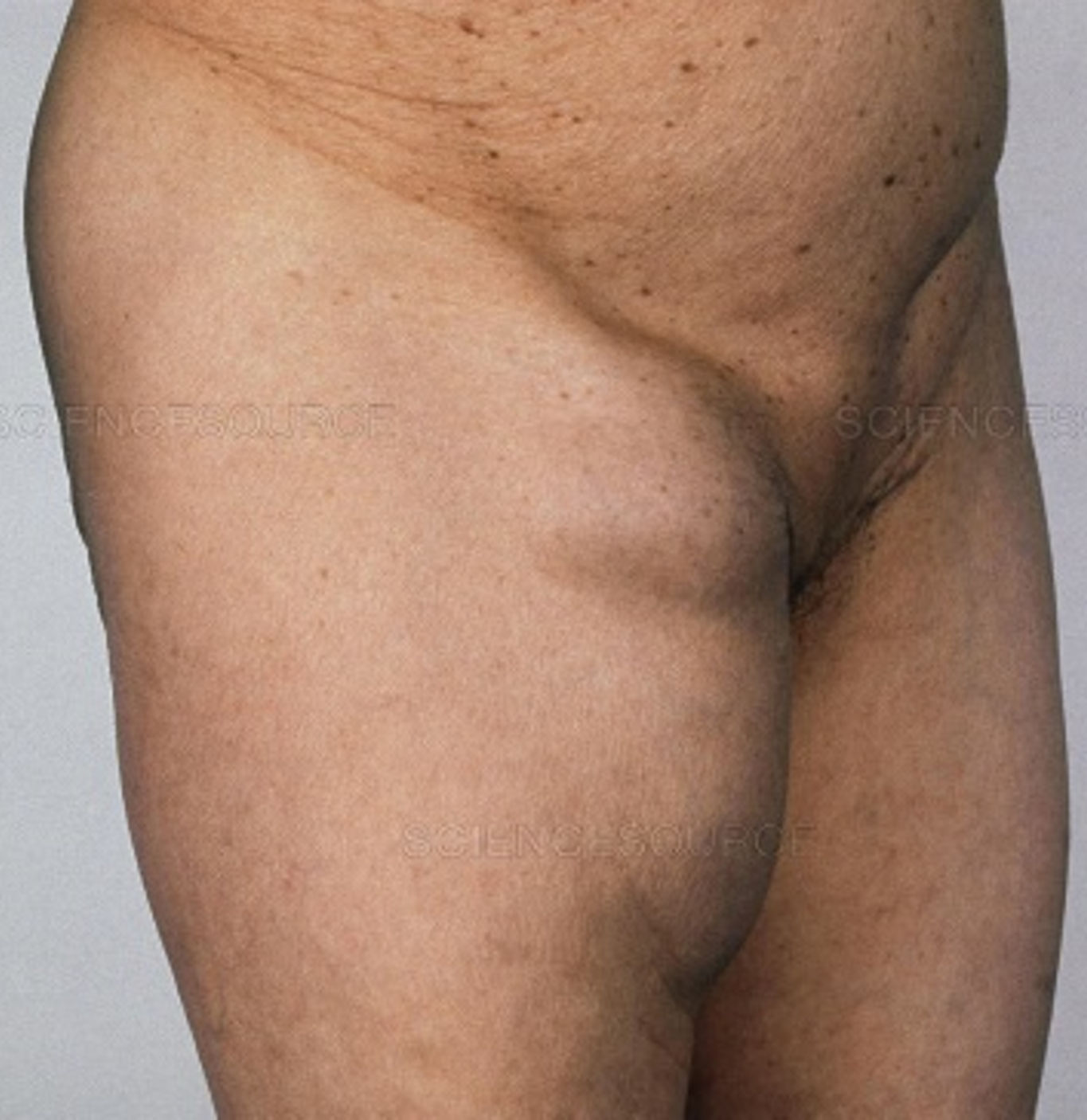
Case
A patient comes to your practice having noticed a pain free swelling has developed over the past month on their anterior right thigh. The patient also reports reduced frequency of bowel movements and a somewhat bloated abdominal feeling.

Question 1/3 - What do you think is going on?
Click on your selected option(s) below (correct = 1, over-thinking = 2+)